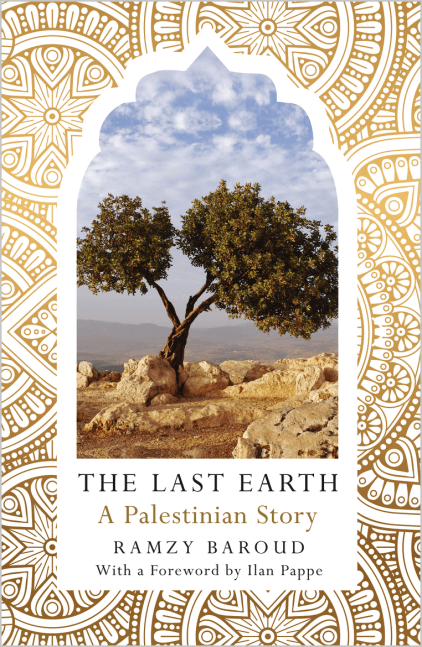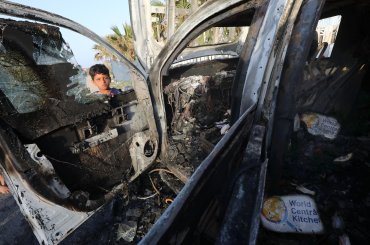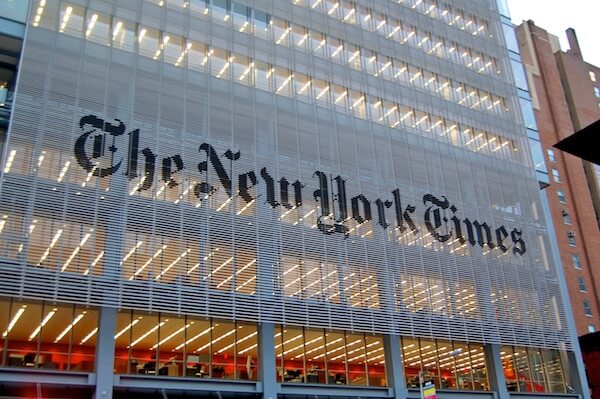The Last Earth: A People’s Story of Palestine
By Ramzy Baroud
296 pp. Pluto Press, $20.00
Dr Ramzy Baroud’s new book, The Last Earth: A People’s Story of Palestine is described simplistically as a ‘non-fictional narrative of modern Palestinian history.’
It is much, much more. For us readers, it is an intimate encounter, chapter by chapter, wherein we are entertaining new friends; having the privilege of listening to, savouring and indeed cherishing the rarely heard Palestinian stories saturated with the fears, joys, suffering, and triumphs of the human spirit.
Baroud’s approach and praxis of a people’s history debunks the traditional accepted notion of Carlyle’s Great Man theory which proposes, “The history of the world is but the biography of great men,” with the Elite Hero as its absolute focal point.

Baroud, however, by honouring the archetypal hero within our deepest selves connects us to the shared aliveness of the Palestinian Other; of Matsam, Khaled, Jamal Khaleel, Tamam, Um Marwan, KamalHana, Sara, Ali, Leila and many more as well as solidarity friends like Joe.
With alchemical brilliance, he has, in the crucible of his art, purified hours of recorded interviews on love stories, generations of births, childhoods, disappearances, adversity, torment, deaths into the essence of Love and Truth and the magic is – we too are purified and illumined by a powerful knowing that can never be un-known.
As an activist, commentator, author, editor, poet, Baroud’s prodigious energy equals his prodigious sense of responsibility to Palestine’s struggle for political and human rights. His articles have an intellectual discipline to fine analysis and facts, while under the poetic sheen of The Last Earth, honesties are excoriated and refined through a powerful emotional turbulence; tender and intolerable.
The Last Earth presents eight personal stories, I shall touch only upon three stories, The Spirit of the Orchard, Death Note and Letters to Heba and leave the remaining five for your discovery.
The Spirit of the Orchard encapsulates the revolutionary spirit that is rooted in the earth of Palestine, growing upward through Palestinian hearts and rendered a force by family. Across three generations trapped in Israeli brutality, the story of Yousef, Hamda, Salim, Um Marwan, Mahmoud and their children, Marwan, Kamal, Iman proves that, when Palestine and her children are under threat, ordinary people become heroic and women emerge from their kitchens and orchards as lionesses wedging themselves, “between screaming children and angry soldiers” and tend, like Fatima, to the wounds of Palestine’s champions. That this is a true story is both sobering and soaringly inspirational.
Death Note: News of Hana Shalabi’s arrest and her later deportation to Gaza never revealed what happened in between. Her story expands beyond the news bites to the Nakba and her family’s expulsion from Haifa to Burqin near Jenin where her father, Yahya and mother, Badia met and married, where her teenage neighbour, Mohammed was shot by Israeli soldiers before her eight-year old eyes, where her revolutionary siblings Omar and Amar and sister, Huda were arrested, where nearby Israelis crushed Palestinian resistance and demolished the camp, where her martyred brother Samir is buried, where Hana was arrested without evidence for being a threat to Israel by the Palestinian Authority which turned her over to the Israelis. Hana’s phenomenal defiance is measured above and beyond the humiliation, physical and mental torture she endured for 25 months. The brutality was repeated with her second arrest in 2012 and this time her demand for justice was a hunger strike for 47 days that brought her to death’s edge and exile to Gaza.
Letters to Heba reminds me of the trials of Job for such is the harsh history, the vagrant odyssey and personal, physical and mental sacrifices of Palestine’s freedom fighters. Ali Abumghasib is now an old man, a noble Bedouin and battle scarred veteran soldier of the resistance and his story unfolds through his letters to his daughter, listed as a missing person from Deraa refugee camp in Syria. In 1948, the Abumghasib family were torn from their village Wadi Al-Shalalah in Bir Al-Saba and fled to Gaza. In the 1967 Naksa, Ali escaped to Jordan where at 17 he joined the PLO. Decades later, back in Gaza, Ali clings to the hope of reuniting with Heba. One fervently hopes that with Heba, his odyssey will soon culminate in his return home to Wadi Al-Shalalah.
As I read these beautifully written narratives, I easily relate to the childhood pleasures, teenage crushes, falling in love, connection to place but I wondered at the soul strength of Palestinians for whom normality is the violence of the illegal Israeli occupation and I wondered how would I cope with losing my home and not knowing for decades whether it was blown up, demolished or unlawfully inhabited, sans compensation, by foreign forces? How would I cope with the devastating murders of my parents, or siblings, or neighbours and friends? Could I relinquish my dead child (children) for burial? Could I bear torture? Have I the strength for a 47-day hunger strike? I don’t know the answers but I do know that I bow with great respect to the Palestinian warrior soul.
These stories set in the default position of exile and loss, whether within Palestine or the diaspora, challenge Israel’s monolithic propaganda and rearticulation of Palestinian history, stolen and maimed over decades of savage Zionist colonisation. The Last Earth redresses and reclaims Truth built on the abiding, unfaltering Love for the stolen Palestinian homeland sealed with sumoud in indomitable refugee hearts.
This is a dangerous book because by inviting us into an intimacy with the people of Palestine, it predicates compelling moral action to end the monstrous injustice; for this reason Baroud’s The Last Earth must be read and shared.



“This is a dangerous book because by inviting us into an intimacy with the people of Palestine, it predicates compelling moral action to end the monstrous injustice; for this reason Baroud’s The Last Earth must be read and shared”
thanks Dr.
“O those who pass between fleeting words
Carry your names, and be gone
Rid our time of your hours, and be gone
Steal what you will from the blueness of the sea and the sand of memory
Take what pictures you will, so that you understand
That which you never will:
How a stone from our land builds the ceiling of our sky”
Slightly off topic. Zionist whataboutery frequently suggests that those of us who have concern for the Palestinians do not care about other issues, and are, therefore, motivated by anti-Semitism rather than any sort of moral commitment.
But here we see:
“She [Dr. Vacy Vlazna] was Human Rights Advisor to the GAM team in the second round of the Acheh peace talks, Helsinki, February 2005 then withdrew on principle. Vacy was convener of Australia East Timor Association and coordinator of the East Timor Justice Lobby as well as serving in East Timor with UNAMET and UNTAET from 1999-2001.”
This book takes us beyond shocking statistics to the lives of real people. An important part of (re)humanizing the people of Palestine. May there be more such books.
I am simultaneously looking forward to reading this book, but also dreading reading what I imagine are the more depressing stories which recount Israeli brutality and human rights violations against the indigenous Palestinians.
For the record:
What happened in Palestine between late 1947 and 1949 was described by eye-witness Nathan Chofshi, a Jewish immigrant from Russia, who arrived in Palestine in 1908 in the same group as David Ben-Gurion: “…we old Jewish settlers in Palestine who witnessed the flight know how and in what manner we, Jews, forced the Arabs to leave cities and villages…some of them were driven out by force of arms; others were made to leave by deceit, lying and false promises. It is enough to cite the cities of Jaffa, Lydda, Ramle, Beersheba, Acre from among numberless others.” (Quoted in Jewish Newsletter, New York, February 9, 1959; quoted by Erskine Childers in “The Other Exodus, in From Haven to Conquest, ed. Professor Walid Khalidi, Harvard, p. 800)
Chofshi was deeply ashamed of what his fellow Jews did to the Palestinians: “We came and turned the native Arabs into tragic refugees. And still we dare to slander and malign them, to besmirch their name. Instead of being deeply ashamed of what we did and of trying to undo some of the evil we committed…we justify our terrible acts and even attempt to glorify them.” (Nathan Chofshi, Jewish Newsletter, February 9, 1959; ibid, p. 803)
In 2004, when asked by Ha’aretz journalist, Ari Shavit, what new information his just completed revised version of The Birth of the Palestinian Problem 1947-1949 would provide, Israeli historian Benny Morris replied: “It is based on many documents that were not available to me when I wrote the original book, most of them from the Israel Defense Forces Archives. What the new material shows is that there were far more Israeli acts of massacre than I had previously thought. To my surprise, there were also many cases of rape. In the months of April-May 1948, units of the Haganah were given operational orders that stated explicitly that they were to uproot the villagers, expel them and destroy the villages themselves.” (Ha’aretz, January 9, 2004)